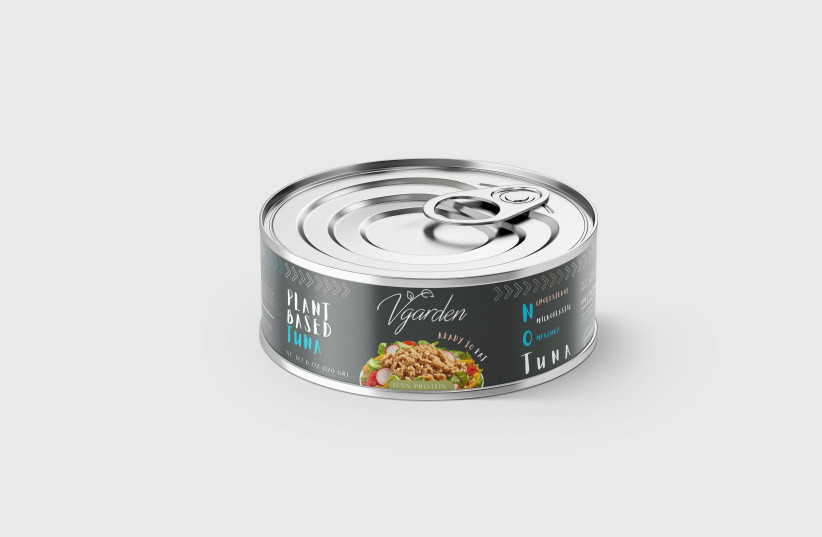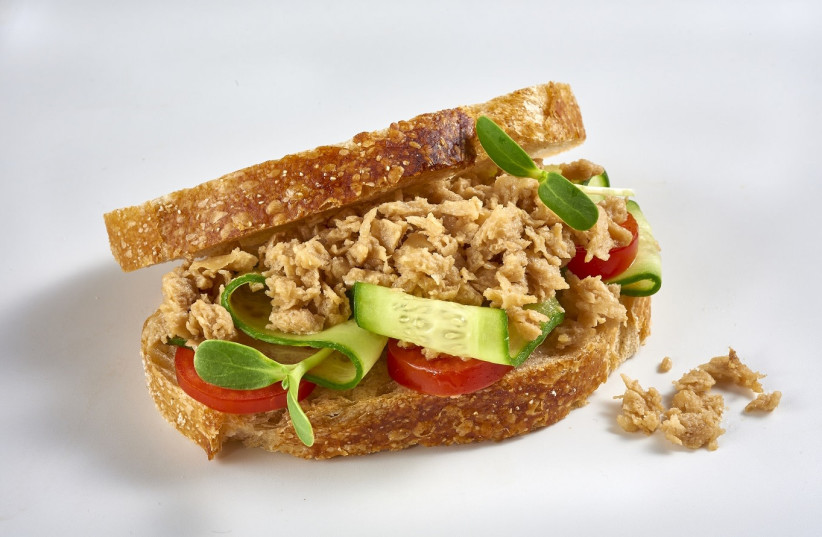An Israeli company named Vgarden, Ltd., a food-technology developer and manufacturer of plant-based alternatives, has produced vegan canned “tuna” that it claims has the same appearance, texture and flavor of the tuna fish even though it was produced from peas.
The tuna analog is crafted to satisfy the appetites of the growing pool of sustainability-driven consumers by bringing to the table its creative response to the issue of the overfished and rapidly declining ocean populations of wild tuna, according to the company.
The tuna fish market is growing
Tuna is the world’s most-consumed fish, according to a UN report. The global tuna fish market is projected to grow from $41.06 billion in 2022 to $49.70b. in 2029. Canned tuna is a popular source of affordable protein that is convenient to store and requires no refrigeration.
“Tinned tuna has a very distinct flaky, yet moist and chewy texture, with a powerful fresh-from-the sea aroma,” explains Ilan Adut, CEO of Vgarden.
“Our new tuna-like product is clean-label, scalable, affordable and sustainable. But for our plant-based creation to serve as a true substitute, even beyond compellingly mimicking all of the sensory qualities, it also has to match tuna as much as possible in nutritional value,” he added.

After a year of experimentation with ingredients and processes, the start-up developed its winning plant-based tuna formula. The private-label product is already being rolled out in the retail and food service sectors. It is available in two packaging formats – pouches for chilled storage and actual cans to give the full authentic tuna experience and make possible convenient storage without refrigeration.
Vgarden’s R&D mission was to develop a tuna that can be tinned and sterilized at high temperatures, yet retain its full flavor and texture. The company has filed a patent for the formula and process.
Vgarden’s tuna analog is based on pea protein, with a total protein content of 11.2% to 14%, before and after filtration. It contains a short list of natural ingredients including fibers and sunflower oil. Being sourced outside the marine ecosystem, the start-up’s “tuna-free” tuna contains none of the toxic metals, microplastics and other ocean pollutants.
Its proprietary manufacturing process uses only minimal energy consumption and water, lifting the burden on marine life, bringing a highly sustainable and guilt-free seafood option to consumers.
“Aquaculture and the overfishing of this high-in-demand fish has had a devastating effect on their numbers to the point that it has put several species, such as the yellowfin and the Atlantic Bluefin, on the edge of extinction,” said Tom Rothman, head of global sales at the company. “This not only poses problems in terms of food security but also negatively impacts the delicate and fragile balance of the marine environment. Our plant-based tuna solution can help turn the tide on this ecocatastrophe and contribute to the restoration of the ocean’s wild tuna populations.”
Rising demand for tuna
Europe and Asia are the leading buyers of canned tuna, with South America and the Middle East fast developing an appetite for it. Tuna’s popularity coincides with a major rise in ethically and ecologically motivated health-conscious consumers seeking plant-based seafood alternatives.

Vgarden, founded by Kibbutz Gan Shmuel and the Eliav family, is a leading developer and manufacturer of tasty plant-based, vegan foods. Established as Gan-Shmuel Health Industries (2017) Agricultural Cooperative Society Ltd., its team of experts develops and markets a comprehensive range of cheeses, spreads, pastries and nuggets. All retail cheeses manufactured by Vgarden are not genetically engineered and free of preservatives, lactose, gluten, trans fats, soy and cholesterol. The company recently attained more than $15m. in strategic initial funding by Leumi Partners to boost product development.
The company already has launched a variety of meat and dairy alternatives under its MashuMashu brand. The vegan line is fast becoming a household name among the dairy-intolerant and flourishing flexitarian community that eats mostly plant foods with the occasional inclusion of meat. Its products are currently offered in several popular restaurant and pizza chains in Israel, which has more vegans and vegetarians per capita than any other Western nation.
